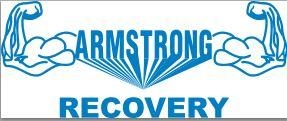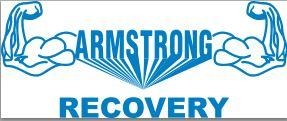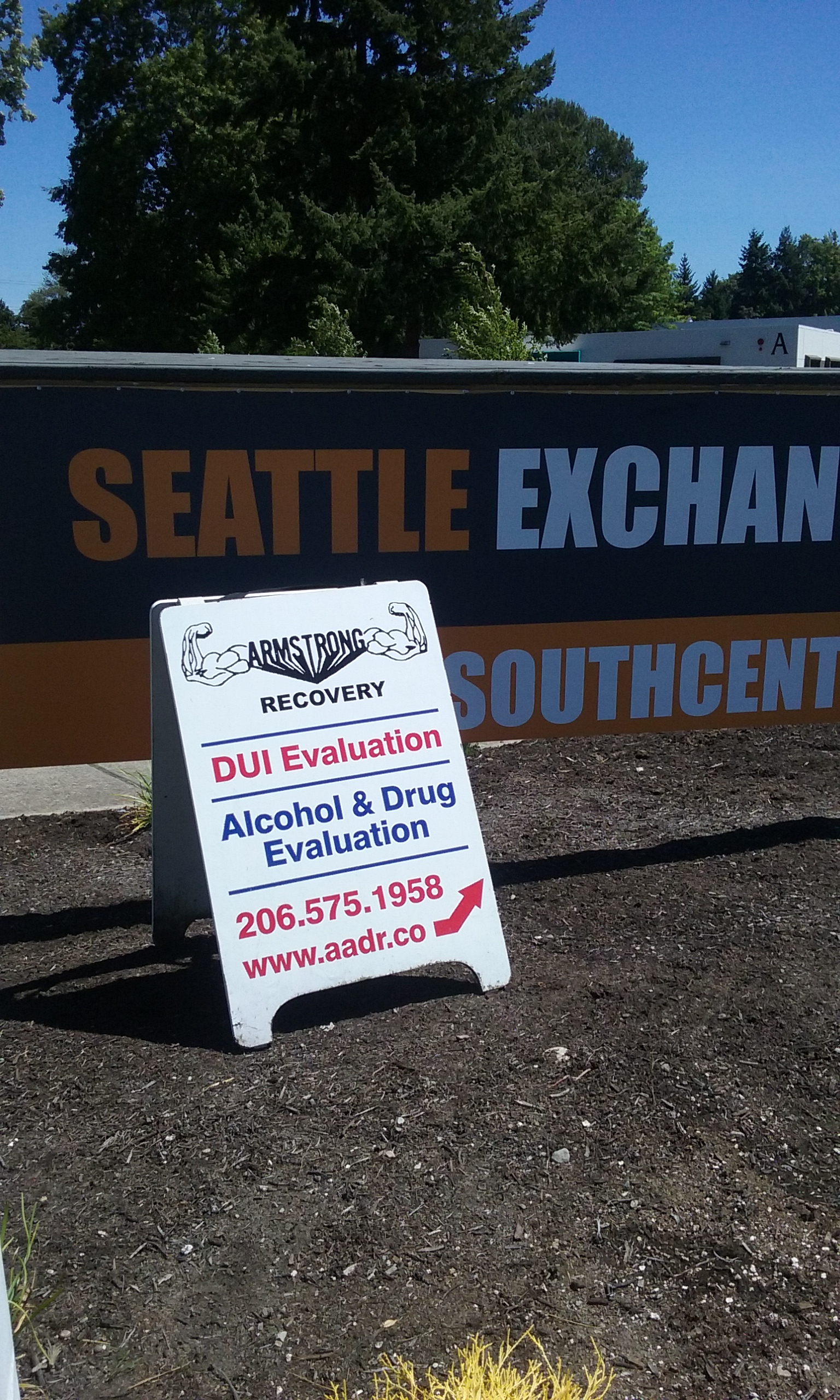Armstrong Alcohol and Drug Recovery, LLC
January 3 at 11:19 PM ·
DIVERSITY AND COGNITIVE BEHAVIORAL THERAPY
Understanding the two is a complicated proposition considering our historical social stratification of people of cultural diversity. The acceptance of diversity can bring creativity, new ideals, justice, fairness, sense of what's right vs what's wrong, and the mercy of God. On the other hand, Cognitive Behavioral Therapy (Alber Ellis 1994). Ellis wrote, "humans have in born tendencies toward growth and actualization, yet they often sabotage their movement toward growth as a result of their inborn tendency toward crooked thinking and also the self-defeating patterns they have learned (Ellis 1991a, 1991b, 1991c, Ellis & Dryden 1987).
When free base cocaine hit black communities in the late 70's, and crack cocaine epidemic hit black communities in the 80's, 90's etc. There were no state alcohol and drug division until 1984, even than diversity was not allowing state certified providers of diversity. Black communities were devastated, black families had decades of addiction and lost love ones. It's still widely unknown how cocaine got targeted to the black community.
I went to college to get my education not knowing I was dyslexic (1977). Major BS Corrections and minor in Sociolgy (1985). Looking back about two years ago I believed that God put me in this field some 36 years ago. I am stubborn, hardheaded, hard worker, educated, focused and believe in the Spirit of Discernment.
The old approach of counseling was to counsel from the stand point -Behavior-feelings-thinking (wrong..lol). In 1994/95 in Portland, Oregon where I started my career we were trained on "Cognitive Behavioral Therapy" for 80 hours in a therapeutic community, and that approach was we counsel from the stand point of everything is cognitive, Think(everything comes out of
thinking)-feelings- (emotions)-behavior (which is a action).
As a people and society we can learn from Ellis work. Ellis wrote, "we create, both consciously and unconsciously, the ways we think and, hence, the ways we feel in a variety of situations. Because we have the capacity for self awareness, we can observe and evaluate our goals and purposes and thus, can change them. We are able to creatively decide to feel differently about a situation and therefore stubbornly refuse to make ourselves severely anxious or depressed about anything (Ellis 1988).
This is good therapy for those who want to fight their addiction, make change, and is good therapy for our society that refuse to honor diversity as a society at large.
In 2012, there was this program that use to be around the corner from my program. A black client sat in a all white group (counselor white male). The counselor went around the therapy group asking each client why they would relapse, when the counselor got to the black client, he replied, "because of discrimination". The counselor chastised him, telling him he would be the first to relapse. He transferred to my program and asked me if he was wrong for saying that. I told him, no. I replied that is Cognitive Behavioral Therapy by Ellis. The counselor simply was ill trained and uneducated to deal with culture diversity struggles which Ellis talks about in his work. As counselors we need to change the patient's "cognitive thinking" so it does not lead to life destructive behaviors. AL ARMSTRONG, BS, CDP, NCACII, DOT SAP
DIVERSITY AND COGNITIVE BEHAVIORAL THERAPY
Understanding the two is a complicated proposition considering our historical social stratification of people of cultural diversity. The acceptance of diversity can bring creativity, new ideals, justice, fairness, sense of what's right vs what's wrong, and the mercy of God. On the other hand, Cognitive Behavioral Therapy (Alber Ellis 1994). Ellis wrote, "humans have in born tendencies toward growth and actualization, yet they often sabotage their movement toward growth as a result of their inborn tendency toward crooked thinking and also the self-defeating patterns they have learned (Ellis 1991a, 1991b, 1991c, Ellis & Dryden 1987).
When free base cocaine hit black communities in the late 70's, and crack cocaine epidemic hit black communities in the 80's, 90's etc. There were no state alcohol and drug division until 1984, even than diversity was not allowing state certified providers of diversity. Black communities were devastated, black families had decades of addiction and lost love ones. It's still widely unknown how cocaine got targeted to the black community.
I went to college to get my education not knowing I was dyslexic (1977). Major BS Corrections and minor in Sociolgy (1985). Looking back about two years ago I believed that God put me in this field some 36 years ago. I am stubborn, hardheaded, hard worker, educated, focused and believe in the Spirit of Discernment.
The old approach of counseling was to counsel from the stand point -Behavior-feelings-thinking (wrong..lol). In 1994/95 in Portland, Oregon where I started my career we were trained on "Cognitive Behavioral Therapy" for 80 hours in a therapeutic community, and that approach was we counsel from the stand point of everything is cognitive, Think(everything comes out of
thinking)-feelings- (emotions)-behavior (which is a action).
As a people and society we can learn from Ellis work. Ellis wrote, "we create, both consciously and unconsciously, the ways we think and, hence, the ways we feel in a variety of situations. Because we have the capacity for self awareness, we can observe and evaluate our goals and purposes and thus, can change them. We are able to creatively decide to feel differently about a situation and therefore stubbornly refuse to make ourselves severely anxious or depressed about anything (Ellis 1988).
This is good therapy for those who want to fight their addiction, make change, and is good therapy for our society that refuse to honor diversity as a society at large.
In 2012, there was this program that use to be around the corner from my program. A black client sat in a all white group (counselor white male). The counselor went around the therapy group asking each client why they would relapse, when the counselor got to the black client, he replied, "because of discrimination". The counselor chastised him, telling him he would be the first to relapse. He transferred to my program and asked me if he was wrong for saying that. I told him, no. I replied that is Cognitive Behavioral Therapy by Ellis. The counselor simply was ill trained and uneducated to deal with culture diversity struggles which Ellis talks about in his work. As counselors we need to change the patient's "cognitive thinking" so it does not lead to life destructive behaviors. AL ARMSTRONG, BS, CDP, NCACII, DOT SAP
Armstrong Alcohol and Drug Recovery, LLC
April 15, 2016 at 4:26 PM ·
T.H.I.Q. (Tetrahydrolsoqulnoline) found in the brains of alcohol use disorder moderate/severe people(formerly known as alcoholics). When a person shoots heroin into their body, some of it breaks down and turns into T.H.I.Q. Well, how does T.H.I.Q. gets in the person who is diagnosed alcohol use disorder (moderate/severe)? The body breaks alcohol into "Acetaldehyde", this is a toxic that builds up in us. It has been said that if you smelt this outside of the human body it would make you violently sick or it would kill you, but God made the human body to deal with this toxic. The body then takes that toxic substance and turns it into carbon dioxide and water which is eliminated through the kidneys and lungs (that is for normal drinkers). For the alcohol use disorder moderate/severe (formerly known as the alcoholic) this substance is not eliminated and goes to the brain ending up as T.H.I.Q. Facts of THIQ: 1)stronger than morphine, 2) highly addictive, 3)In WWII we tried it as a painkiller but it was more addictive than morphine, 4)Studies done on monkeys, once shot with THIQ the substance stayed in the brain, 5) The monkey stayed off alcohol for 7 years and the THIQ substance still found in the brain. The point was made that this is important because the monkey as is close to the human being medical terms. When drinking alcohol the line is unclear when one cross that line of piling up enough THIQ to be alcohol use disorder moderate/severe, or what some call "normal" drinkers. We can only see it in the person's behavior/actions with alcohol. Good luck, Al Armstrong, BS, CDP, NCACII, DOT SAP
T.H.I.Q. (Tetrahydrolsoqulnoline) found in the brains of alcohol use disorder moderate/severe people(formerly known as alcoholics). When a person shoots heroin into their body, some of it breaks down and turns into T.H.I.Q. Well, how does T.H.I.Q. gets in the person who is diagnosed alcohol use disorder (moderate/severe)? The body breaks alcohol into "Acetaldehyde", this is a toxic that builds up in us. It has been said that if you smelt this outside of the human body it would make you violently sick or it would kill you, but God made the human body to deal with this toxic. The body then takes that toxic substance and turns it into carbon dioxide and water which is eliminated through the kidneys and lungs (that is for normal drinkers). For the alcohol use disorder moderate/severe (formerly known as the alcoholic) this substance is not eliminated and goes to the brain ending up as T.H.I.Q. Facts of THIQ: 1)stronger than morphine, 2) highly addictive, 3)In WWII we tried it as a painkiller but it was more addictive than morphine, 4)Studies done on monkeys, once shot with THIQ the substance stayed in the brain, 5) The monkey stayed off alcohol for 7 years and the THIQ substance still found in the brain. The point was made that this is important because the monkey as is close to the human being medical terms. When drinking alcohol the line is unclear when one cross that line of piling up enough THIQ to be alcohol use disorder moderate/severe, or what some call "normal" drinkers. We can only see it in the person's behavior/actions with alcohol. Good luck, Al Armstrong, BS, CDP, NCACII, DOT SAP



